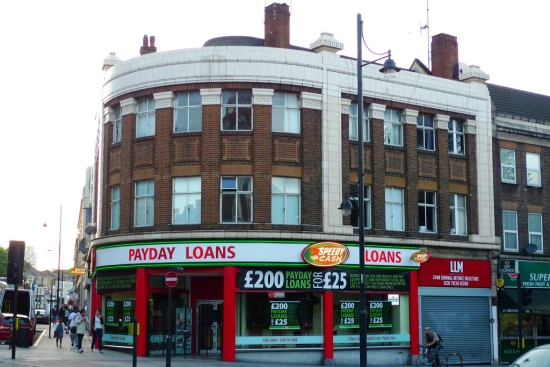A new Labour Party policy review proposes adding a new commercial property use class and handing councils the power to locally determine permitted development rights.

The first proposal is designed to halt the proliferation of certain types of premises such as payday loan companies and betting shops. The second would allow councils to choose which use classes could be changed without planning permission, based on local needs.
The proposals are included in a document entitled Helping our High Streets: Empowering Local Communities which sets out the party’s position on reviving the fortunes of town centres. Central to this strategy is encouraging diversity and making the high street a pleasant location for retail and leisure.
The document begins by citing a range of statistics that illustrate the need for urgent action. Among these is the finding that 1,800 shops closed during 2012 bringing the number of empty retail properties to one in seven, or 14.2 per cent. In contrast there are 20 per cent more payday loan outlets and 3.3 per cent more betting shops than there were a year ago.
Putting this into context the document says; “There are now more than twice as many betting shops on British high streets as all the cinemas, bingo halls, museums, bowling alleys, arcades, galleries and snooker halls combined.”
The party believes that this trend of ‘clustering’ threatens the long-term sustainability of the high street by deterring many people from venturing there. Currently there is little local authorities can do to prevent these types of outlets colonising town centres.
Currently they fall into the A2 use class alongside other types of financial and professional services. This means that if, for example, a bank closed, that property could be used as a betting shop or payday loan outlet without having to seek planning permission.
Similarly the current legislation allows the use of properties classified as A3 (restaurants and cafés) A4 (drinking establishments) and A5 (hot food takeaways) to be altered to that of A2 without reference to the local authority.
With the creation of an additional ‘umbrella’ property class, to which councils could assign these types of businesses, this would be stopped. The party wants to introduce this change without increasing the burdens on either local councils or businesses and is currently consulting on how it could be implemented quickly and effectively.
The second significant change contained in Helping our High Streets appears to be a variation on the office to residential use change relaxation recently introduced by the government.
Labour considers this to be a ‘top down’ intervention that fails to take into account local variations. Instead they propose to leave the decision regarding development rights to local authorities.
“For instance, in some places it is thought that there is an oversupply of retail space in a town centre and that life could be injected back into the community by allowing some of these shops to be converted into much-needed homes for young families, or it may be there are too many offices and not enough restaurants,” the document explains.
The party is keen to stress that it is not proposing wholesale changes to either the use class legislation or planning laws. Instead, they claim they simply want to “allow flexibility on the high street, in a way which suits the community they represent.”
Whether or not these proposals are ever implemented, they at least serve as a further contribution to the debate surrounding the future of our town centres.
Previous Post
New Legislation Could Prove Hazardous to Small Retailers